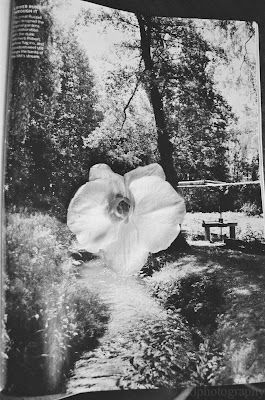 r something like that. Having never read Chekov previously and also having no historical context for his writing, what follows is an entirely off-the-cuff stream of thoughts relating to the short novel, The Duel (translated by Constance Garnett, as recommended by Hemingway).
r something like that. Having never read Chekov previously and also having no historical context for his writing, what follows is an entirely off-the-cuff stream of thoughts relating to the short novel, The Duel (translated by Constance Garnett, as recommended by Hemingway).On the surface, this seems to be a story about a bunch of locals with nothing better to do than squabble and moralise at each other. Since all they have are their own experiences and opinions and lack much depth, they are not terribly interesting or sustainable characters, but their observations of each other carry some weight to the reader.
Instead of just taking the situation at face value, it's also possible to see the conflict as a metaphor for the conflict within an individual. In particular, the two gentlemen who wind up dueling, Laevsky and Von Koren, might be representative of the conflicting aspects of a personality, two ways in which to react to the surrounding world. Both consider society to be broken and useless. Laevksy chooses to spend his life full of apathy and regret, avoiding engagement, while Von Koren displays aggression towards others in a misconstrued attempt to bring them around to his philosophy, and also toward himself in order to maintain his prescription of action.
By the time the characters reach the grounds of the duel, they have both lost their motivation and aggression and decide not to follow through. They are the dueling aspects of a personality: at great odds with each other right up until the critical point, when nothing comes of the whole business (and the deacon steps in! Don't get me started on spirituality). They continue on their paths and gradually make some changes in their lives, but the grand, driving force of pure dogmatism has disappeared.
So I suppose the lesson I took from this was that holding your ground and acting on/being true to your character is important to maintaining an identity and strong progression through life. Don't stand still or get lost in internal debate, but use conflict to come to new places in thought and in life. Or something like that.




